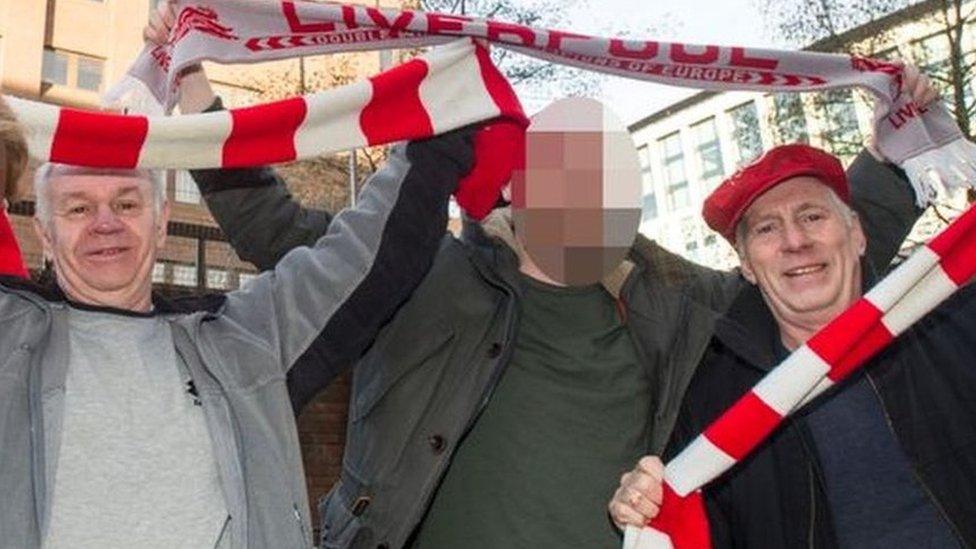One-punch deaths: How lives are devastated by a single blow
- Published
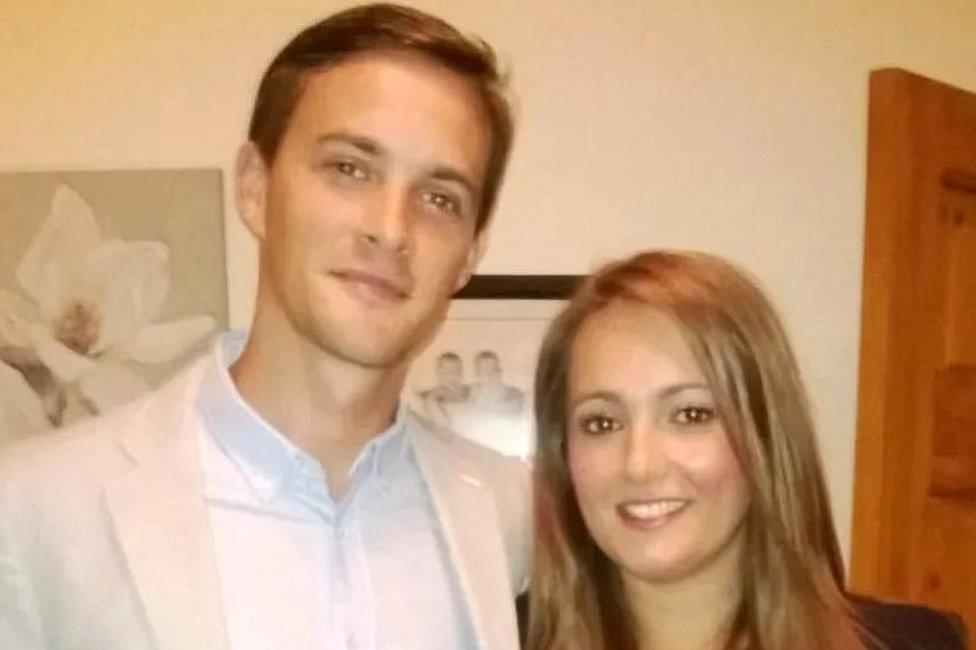
Oliver Dearlove, pictured with his girlfriend Claire, died within 24 hours of the attack
Trevor Timon has been convicted of killing bank worker Oliver Dearlove with a single punch. It's not the first case of its kind to make headlines, but how does one punch kill someone and what are the consequences for those involved?
Robert Holland had been on a rare night out after months of working seven-day weeks.
Before the 36-year-old went to the Oceana nightclub in Nottingham, he phoned his mother, Therese, to tell her he would visit her the next day.
It was the last time they spoke.
Hours later, in the early morning of 28 October 2011, Robert suffered fatal brain injuries from just one punch.
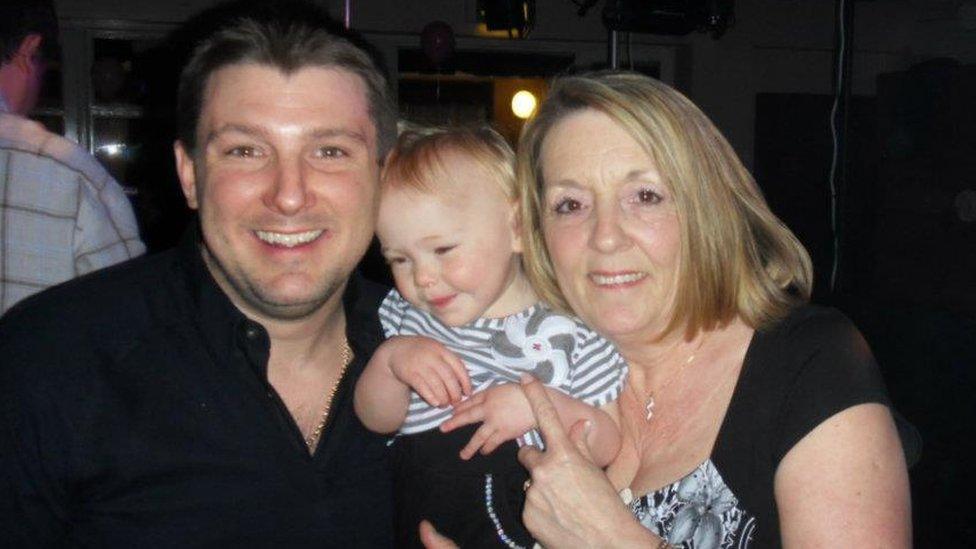
Robert Holland, pictured with his mother Therese and niece, Megan
Therese learned what had happened later that morning when police visited her home.
"When they told me I was just screaming," she said. "I even punched them and told them to get out of my house, telling them how dare they tell me lies."
Robert's death was caused by the force of one punch severing an artery in his brain.
Liam Rockley, a 21-year-old former bouncer, later pleaded guilty to manslaughter and was sentenced to three-and-a-half years in prison.
'Just as lethal'
Robert's death is far from an isolated case.
While no official figures are available on one-punch deaths, the campaign group One Punch Can Kill has recorded more than 80 fatalities since 2007.
Many of the cases have attracted media attention - in large part because it seems extraordinary that one punch can kill.
But Duncan Bew, a consultant in trauma and acute care at King's College Hospital, said this reflects a fundamental lack of understanding.
"People are very much focused on penetrating injuries, but actually punching someone in the head can be just as lethal," he said.
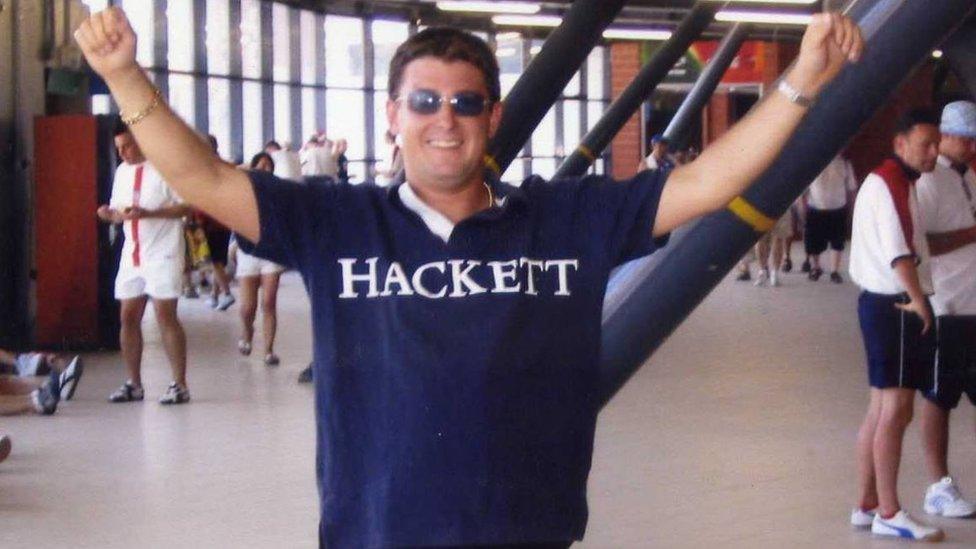
Robert's death was caused by a fatal damage to the brain which caused an artery to sever
Mr Bew said deaths from one punch tended to happen in one of three ways.
Sometimes, as in Robert's case, the blow itself will cause fatal damage to the brain. Alternatively, it could cause a physiological response where people stop breathing and the brain is starved of oxygen.
But in other cases, a punch will cause a person to lose consciousness and strike their head on a hard surface.
The impact is similar to being hit over the head with a block of concrete, Mr Bew said.
'Silly row'
Many one-punch killings involve young men, often in drink-fuelled, random acts of violence.
But Finola Farrant, a criminologist at the University of Roehampton, said the circumstances of cases often varied dramatically.
These can range from unprovoked assaults, to people who have landed fatal blows in self-defence.
In some cases arguments between close friends have resulted in a fatal punch.
Last October, Richard Eveleigh was jailed for killing his best friend of 45 years, Paul Lightowler, with a single punch in what the court heard was a "silly" row.
Dr Farrant said the question for courts to explore in these cases was the extent to which defendants should be culpable for someone's death when they may not have intended - or even realised - that one punch could kill.
Indeed, such is the shock of those unintended consequences that the attackers and their families may come to see themselves as victims too, she added.

One-punch killer: 'People aren't in control of their emotions'

Jacob Dunne was 19 when he killed 28-year-old trainee paramedic James Hodgkinson with one punch in 2011.
He was sentenced to 30 months' imprisonment for manslaughter.
After his release, Jacob agreed to answer questions from James's parents about what happened as part of a scheme called Restorative Justice.
Later he met them in person, and keen to show them he was turning his life around, he re-took his GCSEs, did an Access course for university, and is now studying criminology at Nottingham Trent University.
Jacob, now 24, says he believes one-punch deaths, and violent crime in general, could be reduced by teaching children emotional wellbeing in schools.
"A lot of this aggression stems from people not being in control of their emotions.
"In reality people need to ask the question 'why are you fighting on the weekends?' The answer is going to be different for everyone."
Jacob now speaks in schools about his experience and in December gave a talk to the TED conference.
He remains in touch with James's parents.

For those affected by one-punch deaths, the end of the court process can signal the end of formal support and counselling.
That lack of support contributed to Ann Bartlett setting up One Punch Can Kill in 2010.
Her son, Kyle, a 21-year-old Royal Navy sailor, suffered a fatal brain injury after being punched in Portsmouth on 5 May 2009.
"Our message is: 'Be a hero and walk away from a fight'", Ann says.
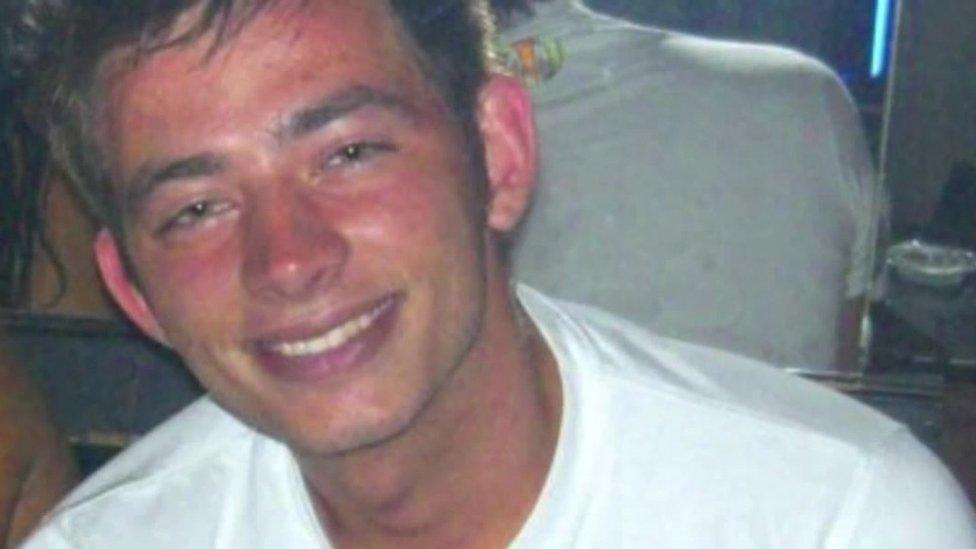
The death of sailor Kyle Bartlett prompted his mother, Ann, to set up a campaign group
The question of how the number of one-punch deaths can be reduced is one both Ann and Therese believe needs to be considered by lawmakers.
Both want sentences to be toughened to match Australia, where there is a minimum of eight years for one-punch killings.
Currently in the UK, the attacks are usually treated as manslaughter and often result in custodial sentences of fewer than five years.
But Dr Farrant said she was doubtful specific guidelines around one-punch deaths would help.
"We've got a very experienced judiciary who can hear and understand the nuances of individual cases that are so markedly different," she said.
Mr Bew said the UK should consider following Australia's lead by introducing padded flooring outsides pubs, bars and nightclubs.
But one area all four agree on is the need for a high-profile campaign to raise awareness of the dangers of one punch.
"Perhaps they need to have signs up in nightclubs, 'think before you punch' and things like that." Therese said.
Remembering Robert, she added: "He had such plans and he wanted to be a dad. That's never going to happen.
"It's such a waste."
- Published12 October 2016
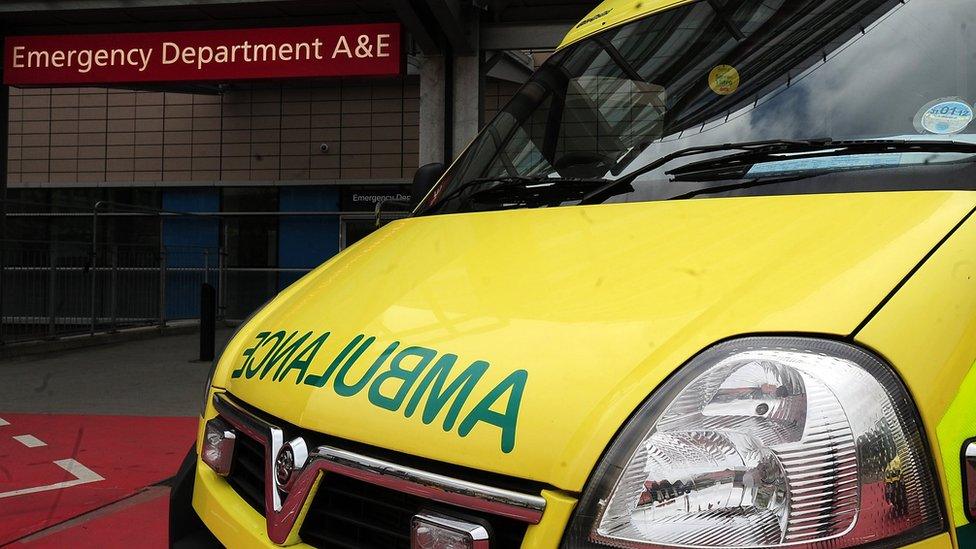
- Published4 October 2016
